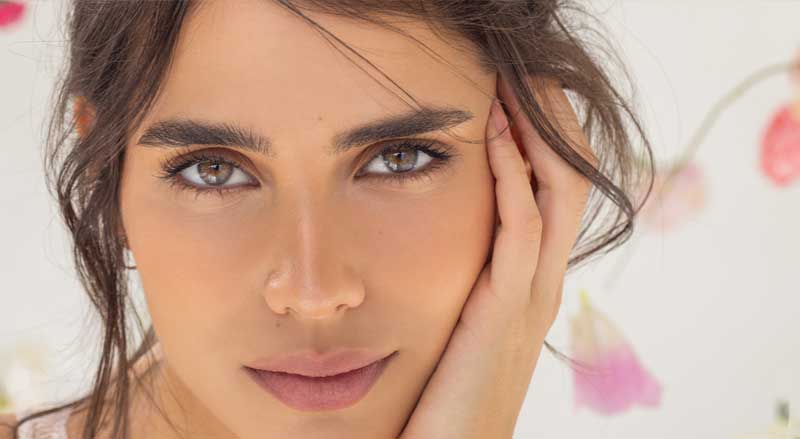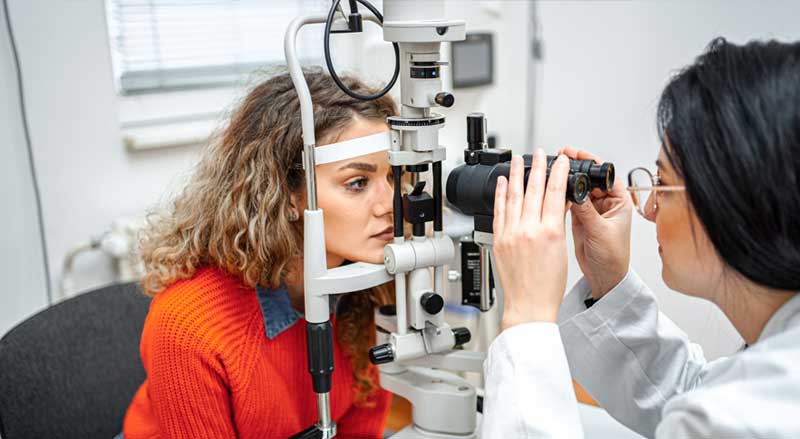Best Habits to Keep Your Eyes Healthy & Looking Good
Posted on |

If you agree with the old adage, “An ounce of prevention is worth a pound of cure,” you’ll want to develop these habits to keep your eyes healthy.
Eyes are beautiful and can speak volumes. They connect us to others and silently convey emotion. Unfortunately, they’re also prone to infection and disease.
Get Periodic Eye Exams
The best thing anyone can do to keep their eyes healthy is to have periodic eye exams.
Even if you’re not experiencing vision problems, eye exams are important. Your optometrist or ophthalmologist will run several painless tests to determine whether you have, or are developing, any eye conditions such as:
- Nearsightedness, farsightedness, or astigmatism
- Glaucoma
- Macular degeneration
- Diabetic retinopathy
- Cataracts
- Dry eye

Early detection and treatment can often save your eyesight. The recommended schedule for eye exams depends on your age and any existing medical conditions, such as diabetes.
Wear Sunglasses When Outside

One of the easiest things you can do to protect your eyes is to wear sunglasses whenever you’re outside—or even in your car.
It’s important to keep your eyes protected from the sun’s harmful ultraviolet rays. This is true not only for hot sunny days but in the gloomy days of winter as well.
Exposure to UV rays can lead to macular degeneration or cataracts later in life.
Wear sunglasses that provide 100% protection from both UVA and UVB rays. And get sunglasses for your kids too—their young eyes need even more protection.
Develop an Active Lifestyle
Good eye health goes hand in hand with an active lifestyle.
Regular exercise — even walking — will help prevent high blood pressure and diabetes. Keeping active helps blood vessels stay healthy and makes it less likely you’ll develop glaucoma or diabetic retinopathy.
The Centers for Disease Control and Prevention recommends that adults have 150 minutes of moderate-intensity physical activity a week and muscle strengthening activity on 2 or more days.
Eat a Healthy Diet
Did you know eating a balanced diet helps your eyes stay healthy?
Your eyes will be better able to fight off disease when you add these essential vitamins and nutrients into your diet.
- Vitamin A — Spinach, pumpkin, red bell peppers
- Vitamin C – Grapefruit, strawberries, tomatoes
- Vitamin E— Avocados, sunflower seeds, almonds
- Beta-carotene — Broccoli, winter squash, lettuce
- Omega-3 fatty acids — Salmon, tuna, sardines
- Lutein — Kale, corn, pistachios
- Zeaxanthin — Egg yolks, kiwis, red seedless grapes
- Zinc — Oysters, beef liver, pomegranate
If these groups of foods sound familiar, it’s because they’re all antioxidants. Antioxidants help prevent harmful inflammation in your body, aid in cellular growth, and help eliminate damaging free radicals.
Here’s more information on what foods to eat for glowing skin—and what to avoid.
Stay Hydrated
Staying well hydrated benefits your eyes and supports good overall health.
Staying hydrated will help your eyes maintain a healthy amount of fluid around the eye. It’s important that the eyes stay moist and create tears to eliminate foreign particles in the eye, including bacteria and dust.
Give Your Eyes a Break from Computers and Other Technology
Eyes that focus on computers or other screens for extended periods of time can develop:
- Dry eye
- Eye strain
- Blurred vision

Many doctors now recommend following the 20-20-20 rule for your eyes. Dr. Jeffrey Anshel, an optometrist and author, is credited with the development of this system.
You should follow the 20-20-20 rule whenever you are using a computer or screen. The rule states every 20 minutes, stop looking at the screen and look at something that is at least 20 feet away for 20 seconds. This will reduce eye strain and keep your eyes from getting tired.
You should also use this rule when reading. Reading books up-close for long periods of time can eventually cause nearsightedness—making distant objects appear blurry.
Don’t Rub Your Eyes
Rubbing your eyes can lead to:
- Eye infections
- Blurry vision
- Light sensitivity
- Other eye problems

Your fingers may have dangerous bacteria or viruses on them that can infect your eyes or other parts of your body.
Instead, use eye drops or saline to soothe and clean your eyes. If you don’t have these items handy, resist the urge to touch your eyes until you wash your hands.
If you wear contact lenses, be sure to wash your hands before handling your contacts. It’s been reported that one in five infections from contact lenses go on to cause corneal damage.
Don’t Smoke!
Researchers have linked smoking to cataract development and age-related macular degeneration. Smoking may also be linked to other eye diseases such as glaucoma, thyroid eye disease, and diabetic retinopathy. Researchers need to conduct more studies.
Additional ways to take care of your eyes include:
- Removing all eye makeup before going to bed to lower your risk of blepharitis or eyelid inflammation
- Getting plenty of sleep so your eyes have time to replenish themselves and reduce the likelihood of dry eye or eye spasms
Getting enough sleep may also help you avoid unattractive bags under your eyes.
Here are more tips for maintaining eye health and beautiful eyes.
Ways to Keep Skin Around Eyes Healthy
The skin around the eyes is extremely delicate. It easily becomes dry and develops fine lines—not to mention those unattractive dark circles underneath.
Now that you know how to help keep your eyes healthy, here are some ways to keep the skin around your eyes healthy and looking great.
- Use sunscreen under your eyes to protect the skin
- Invest in an eye cream or serum that targets cosmetic eye problems, including creams with retinol or peptides for wrinkles, and vitamin C and niacinamides for dark circles
- Apply creams, serums, and cosmetics using a gentle patting motion to avoid tearing or stretching the skin
- Stay hydrated to reduce under-eye bags
Read more about what you can do to get rid of dark circles under the eyes.
Are your eyes puffy? Here’s how you can treat puffy eyes.
Contact us at Vibrance MedSpa for rejuvenating skincare and non-surgical aesthetic medical treatments.
